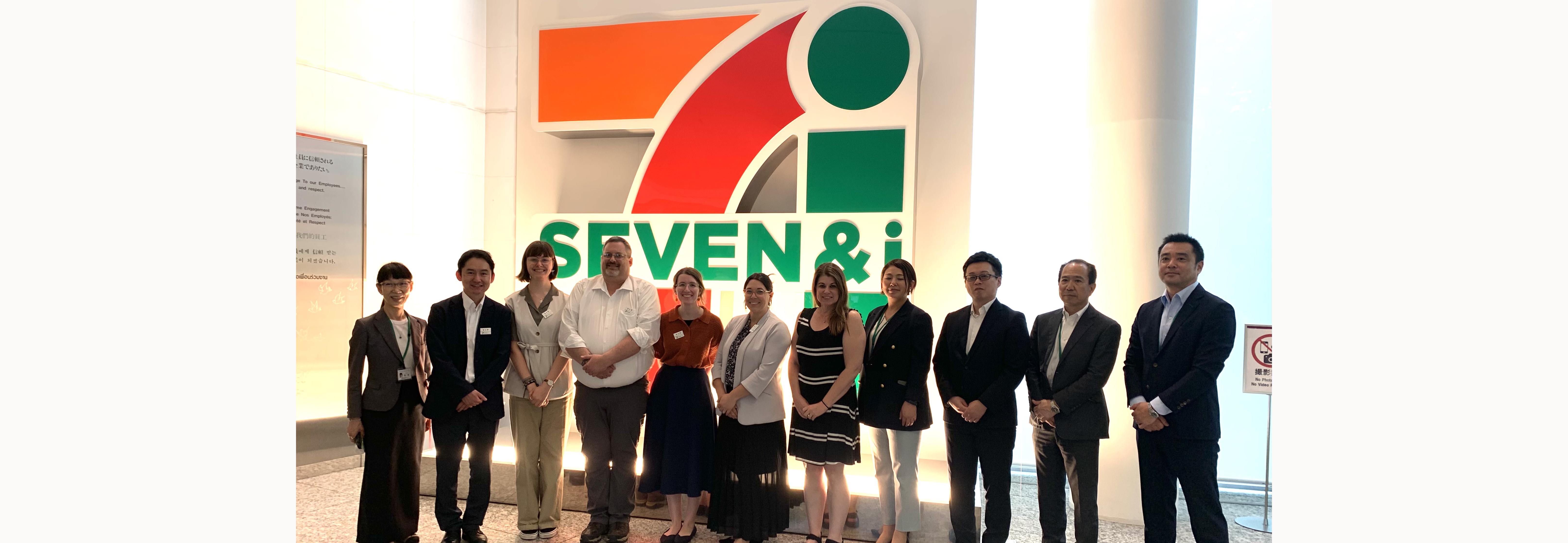
2023 KKC Study Tour to Japan
June 19-June 27, 2023
Keizai Koho Center has invited North American Social Studies teachers to Japan since 1980 to promote mutual understanding by offering opportunities to meet with Japanese opinion leaders and representatives of government, corporations and schools. This year’s program was held from June 19-27 and focused on the ESG (Environmental, Social and Governance) management of Japanese corporations.
The program included several lectures and discussions on topics covering the Japanese economy, society, education, environmental issues and foreign policy. Meetings with scholars and government officials were arranged. A valuable opportunity to discuss international relations with the former Prime Minister Yasuo Fukuda and Mr. Ichiro Fujisaki, former Ambassador to the U.S. were some highlights of the program.
They also visited companies including BIPROGY, Seven-Eleven Japan, Mori Building, Kao Corporation, and MS&AD Insurance Group Holdings and learned how Japanese companies are addressing issues related to ESG and DE&I (Diversity, Equity and Inclusion).
The teachers also visited two schools, Tokyo Metropolitan Ryogoku Senior High School and Attached Junior High School and Kita-Kamakura Girls’ Junior and Senior High School. At Ryogoku Senior High School and Attached Junior High School, students welcomed the American teachers by performing Japanese traditional dances such as Soranbushi and Bon Odori. At Kita-Kamakura Girls’ School, they took up the challenge of teaching about climate change in English to a 10th grade class.
On the last day of the program, a seminar titled “Trends of ESG Management and Challenges for Japanese Corporations: Views of North American Social Studies Teachers” was held at Keidanren Kaikan and representatives from KKC member companies attended. Professor Sayuri Shirai of Keio University, also Visiting Fellow and Advisor for Sustainable Policies at the Asian Development Bank Institute, made a keynote presentation, She emphasized that companies should concentrate on three objectives in their fight against climate change: disclosure (e.g., of emission data and transition plans), sustainable products, and sustainable supply chains. The presentation was followed by comments from the social studies teachers on environmental awareness and education in the United States. The stark differences between states became apparent during their speeches, with some states requiring environmental education and other states prohibiting teachers from even mentioning climate change. Lastly, Professor Shirai moderated a lively discussion with the audience.
The program ended with a peaceful visit to the Meiji Jingu Shrine, guided by a Shinto priest.
After returning to their home country, the fellows will share their first-hand knowledge and experiences from the Japan Study Tour with their students, schools and local communities.
